


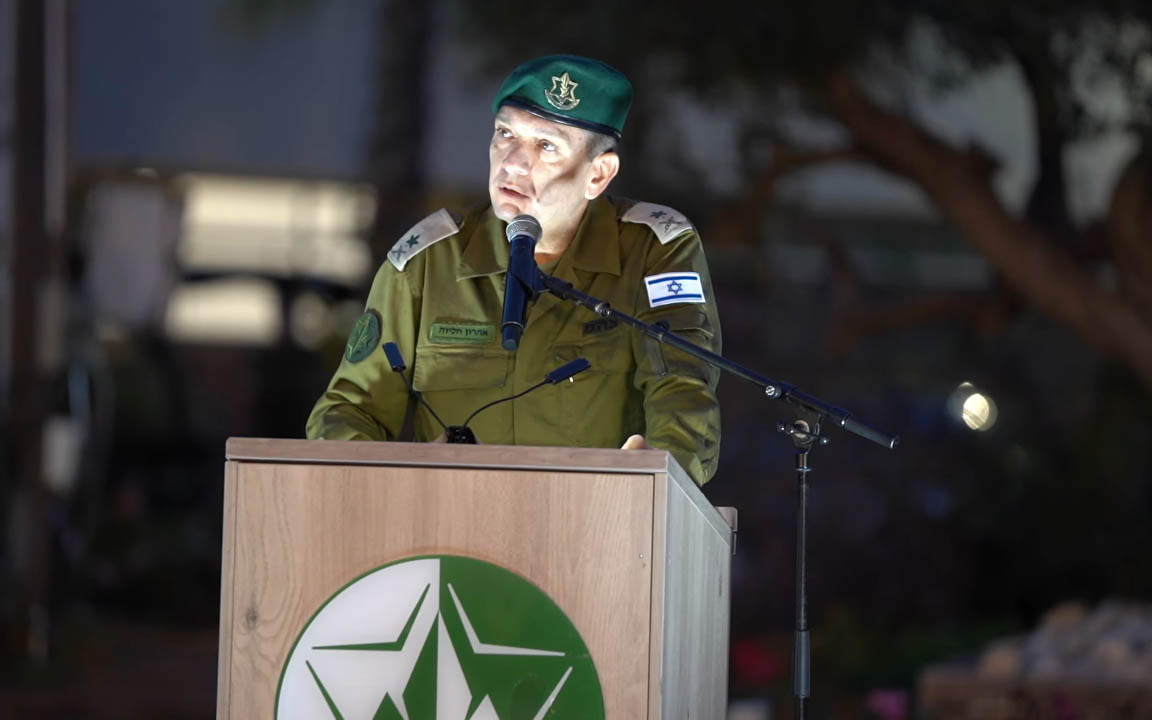
Former IDF intelligence chief Aharon Haliva, in a series of leaked recordings, said that the October 7, 2023, Hamas-led attack did not occur because of intelligence failures or a poor response time the night of the attack, but was the result of “something much deeper, spanning many years, that requires a much deeper correction.”
The tapes of Haliva, who resigned from his position as head of the Military Intelligence Directorate last year against the backdrop of October 7, were aired Friday night on Channel 12’s primetime news program.
In the recordings, Haliva is heard recounting events from the night before the Hamas attack, explaining why he chose to step down from his post, and speaking on military and policy decisions leading up to and in the wake of the October 7 attack.
According to the network, the conversations that were aired took place over the past several months.
“The intelligence failure… is not even about people; it’s something much deeper, spanning many years, that requires a much deeper correction,” the former intelligence chief said in the first recording.
“It’s not a matter of a personnel fix,” he said, criticizing the “idea that if we replace the chief of staff now, replace some other officials, that everything will just go back to to being fine.”
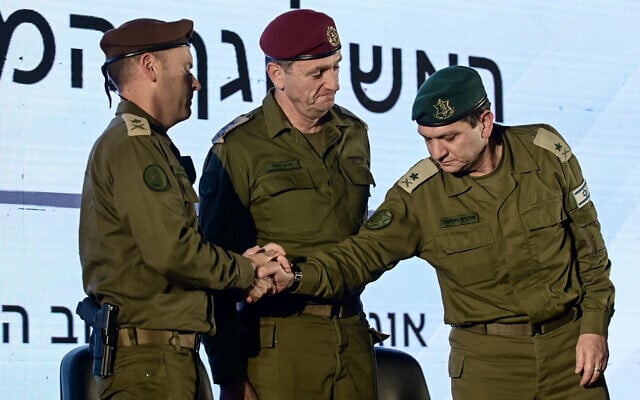
“I’m against the notion that says, ‘It was just an accident,'” he said. “As if you were driving and punctured your tires, so you should just change the tires and keep going. Some people say that’s what happened to us.”
“I say what happened to us is much more than that,” Haliva continued, insisting that the whole system “requires dismantling and rebuilding.”
“One of the biggest problems with the intelligence community was that, until October 7, it said: ‘I’m all-powerful,'” he said. “But it’s not just a matter of smugness or arrogance — it’s deeper than that.”
“When I was asked, during events marking 50 years since the Yom Kippur War, whether I thought it could happen again, I said yes,” he said. “Yes, it can happen again.”
“I am even again saying this today, it can happen again,” Haliva warned.
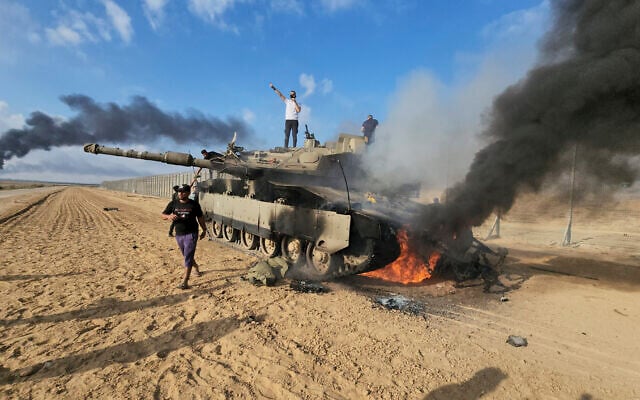
In part of the recordings, Haliva recounted the events in the hours before the Hamas onslaught.
“The SIM cards were activated as early as 9 p.m. on Friday,” he said, referring to the Israeli network cellular service cards that Hamas operatives activated before the attack. “But the first and last phone call I received at night was at 3:20 a.m. from my assistant.”
When asked if he really was not contacted after Hamas activated the SIMs, he insisted nobody notified him: “They talked to the head of IDF’s Southern Command, who called the head of the Shin Bet.”
“There’s a Shin Bet document from 3:30 in the morning,” he said, adding that the document said “the situation is being maintained.”
When asked if he was woken up at night regarding intelligence of an imminent attack, Haliva maintained his assistant called him once.
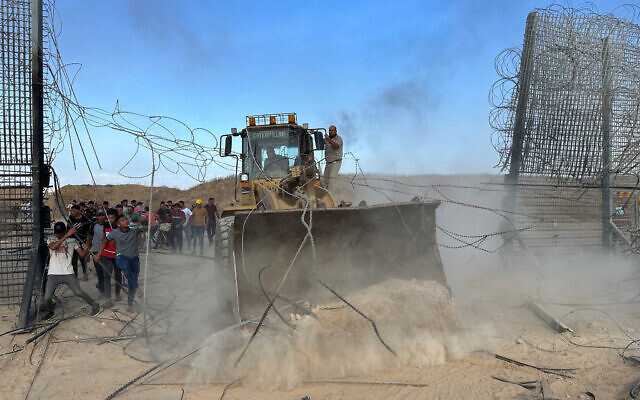
“She told me there was an event,” he said, adding that she said the chiefs of Southern Command and the Operations Directorate were handling it. “If something special happened, she said she would wake me up again, that it.”
“There are Shin Bet documents from that night saying, ‘In our assessment, calm will be maintained, there’s nothing happening, everything is under control.’ that’s not the point,” he said.
“I think the night itself is not relevant,” he said, blaming the failure on the larger operational and intelligence concept that had been in place for years.
The former top intelligence official also argued that the security services cannot act on every intelligence report: “It doesn’t work like that. It just doesn’t,” he said. “Do you know how many isolated reports there are all the time? Intelligence is one huge, crazy puzzle.”
“If you acted on every single piece of information like that, you’d have to keep 300,000 reservists on active duty in the IDF every day,” he argued.
“They told me [former defense minister Yoav] Gallant said: ‘If only they had woken me up at night…’,” Haliva continued. “I immediately said, guys,
even if the chief of staff had woken me up at night, I would say that I rely on the assessments” of the security and intelligence service.
“Anyone who says anything else is a liar,” he charged, saying that he doesn’t think anything would have changed “even if they woke me up right away and put me on duty.”
“Anyone who thinks that the night itself was the main issue, understands nothing about life,” he said.
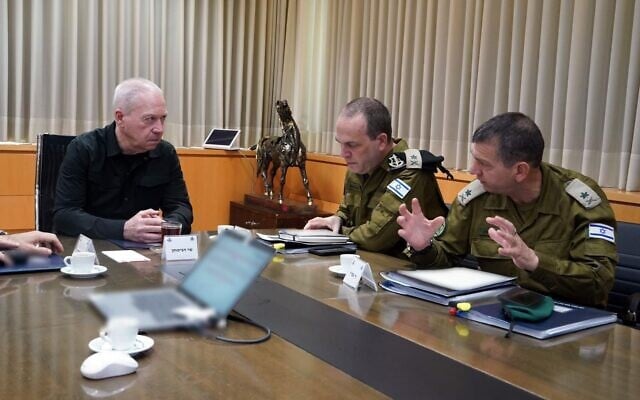
In another segment of the recordings, Haliva said that after he conducted the Military Intelligence Directorate’s investigations into the events of the October 7 attack, he could see clearly that the issue was not about individual negligence, but instead was due to institution-wide failures.
“My understandings from the investigations are much deeper than the faces and names,” he said. “It is much deeper.”
“I don’t think anyone was negligent with malice,” he said, arguing that the system needs “a much deeper dismantling and reassembly.”
“At the end of the day, the Shin Bet’s responsibility for Gaza is at least, if not more, than that of Military Intelligence,” he said, appearing to blame the Shin Bet for not foreseeing and preventing the deadly invasion.
“Where were you, Shin Bet, with all of your billions [of shekel in funding] that you receive?” he asked.
“I took responsibility,” he said, when asked about why he stepped down last year. “For such a tragic event and such a catastrophic national disaster, there is enough responsibility for everyone to go around… everyone should be sent home.”
When asked why every official involved has not yet resigned, he replied: “Because these people were afraid to take action.”
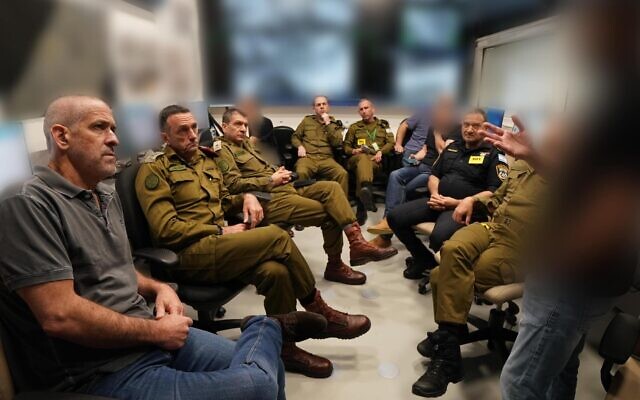
“The system can’t grow back with all the old officials, said, telling those who have yet to step down to “Go, go.”
“I think these people can’t look in the mirror, can’t look at their children, it’s hard,” he said. “With authority comes responsibility.”
“I’m telling you that there is a cultural failure here that has been going on for years, and it is deep,” he said.
“My friends told me, ‘Tell me, Aharon, what should we do?’ I am a chief responsibility officer. You were taught from a young age in the military to look in the mirror. Look in the mirror and decide,” he quipped.
“I’m responsible, it happened on my watch,” he said.
“A large portion of people are unable to take this responsibility because they are afraid of the mirror,” he said, suggesting that the current IDF Chief of Staff Lt. Gen. Eyal Zamir tell all those who were in senior positions on October 7 that they should either resign or be dismissed.
When asked about what worries him about the future of Israel, Haliva said: “Many things bother me.”
“I’m not worried about what will happen in a year or two,” he said, wondering “what kind of country will this be in 50 years?”
“There are places where I’m not optimistic,” he said.
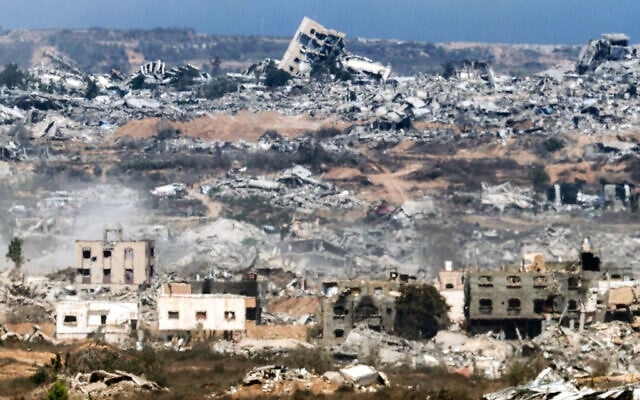
Turning to the war in Gaza that has been raging since October 2023, namely the high Palestinian death toll, Haliva said: “The fact that there are already 50,000 dead in Gaza is necessary and required for future generations.”
While the recording was not dated by Channel 12, current Hamas-run Gaza health ministry figures put the death toll in the war to at over 60,000. Hamas casualty figures cannot be independently verified and do not differentiate between civilians and combatants.
“For everything that happened on October 7, for every person who was killed on October 7, 50 Palestinians must die,” he said.
“I’m not speaking out of revenge, I’m speaking out of a message to future generations, there’s nothing to be done,” he charged. “They need a Nakba every now and then to feel the price. There’s no choice, in this disturbed neighborhood.”
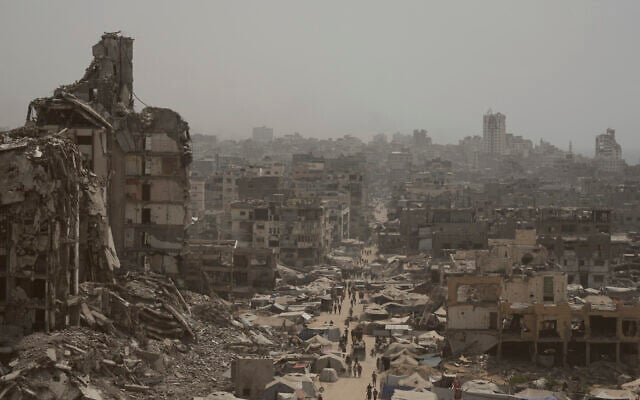
Haliva also described a plan formulated after the 2014 Gaza war to dismantle Hamas, but “no one imagined implementing it.”
“Listen, you don’t understand that there are much deeper things here. The Israeli-Palestinian conflict is at the heart of the matter, because Hamas is good for Israel — that’s [Finance Minster Bezalel] Smotrich’s argument,” he said, saying that the far-right minister wants to dismantle the Palestinian Authority and let Hamas take control in the West Bank, as it did in Gaza after Israel withdrew two decades ago.
“Why? Because if the entire Palestinian arena is destabilized and crazy, it is impossible to negotiate with,” he said. “Then there will be no agreement.”
“Who made the decision to differentiate between Gaza and the West Bank? The prime minister!” he declared, placing blame on the rise of Hamas in Gaza on Prime Minister Benjamin Netanyahu.
“Why does he want Hamas, a terrorist organization, to take over from the PA?” Haliva asked. “He wants Hamas, which is much worse than the PA. Why does he want Hamas? Because the PA has international status.”
“Hamas is an organization that you can fight freely, it has no international justification, it has no legitimacy, you can fight it with a sword,” he said.
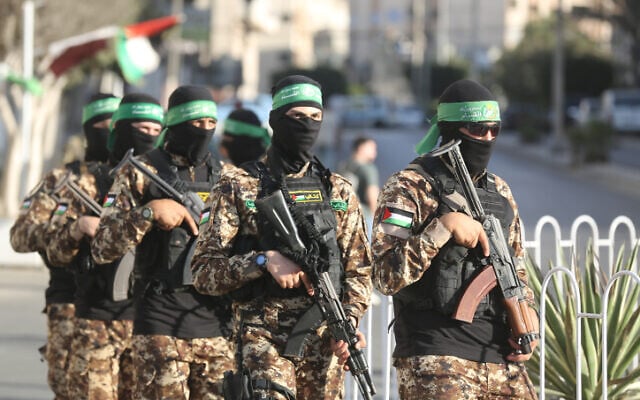
In the final part of the recordings, Haliva was asked if he thinks he will be forgiven for his role in the failures that allowed the October 7 attack to take place.
“Will they forgive me for October 7? What does it matter?” he responded.
“I failed, thank you very much, goodbye. I understand that.”
The military and political leadership needs “to provide protection for its citizens and failed, and everyone who held positions needs to go home and clear the stage,” he said.
“This is the ABC of responsibility,” he said, alluding to Netanyahu’s refusal to accept responsibility and resign, saying he “decided to strengthen Hamas for his own reasons.”
“I didn’t bring Qatari money [to Hamas],” he said, referring to the policy of transferring Qatari funds to Hamas that was in place for years before the attacks.
“He let Hezbollah grow and let Hamas grow,” Haliva went on. “He knew that the prisoner problem was simmering, he saw that the Temple Mount was burning, he saw that there were waves of terror, everything was known.”
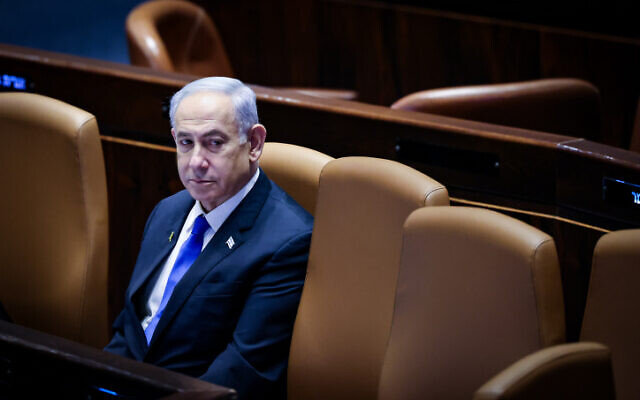
“He decided not to go to war and that’s fine, it’s a legitimate decision,” Haliva said, adding that “when it fails the test of results — there’s a price for it.”
After the recordings were aired, Haliva issued a statement that said “the October 7 disaster occurred on my watch.”
“Therefore,” he said, “I bear ultimate responsibility for what happened.”
“The leaked recordings were published from things said in a closed forum, and I can only regret that,” he added, saying that they were “fragments of partial things, which cannot reflect the full picture — certainly when it comes to complex, detailed issues, most of which are highly classified.”
Haliva also called for a state commission of inquiry into the October 7 failures, saying it is “the only body authorized and obligated to investigate what happened. Only such an investigation can draw the necessary conclusions so that such a disaster does not happen again.”
The government has pushed back against establishing a state commission of inquiry, initially arguing that doing so amid an ongoing war would distract the military and be divisive, but it has since shifted to arguing that such a committee would be slanted against the government, since its members are appointed by the president of the Supreme Court.
